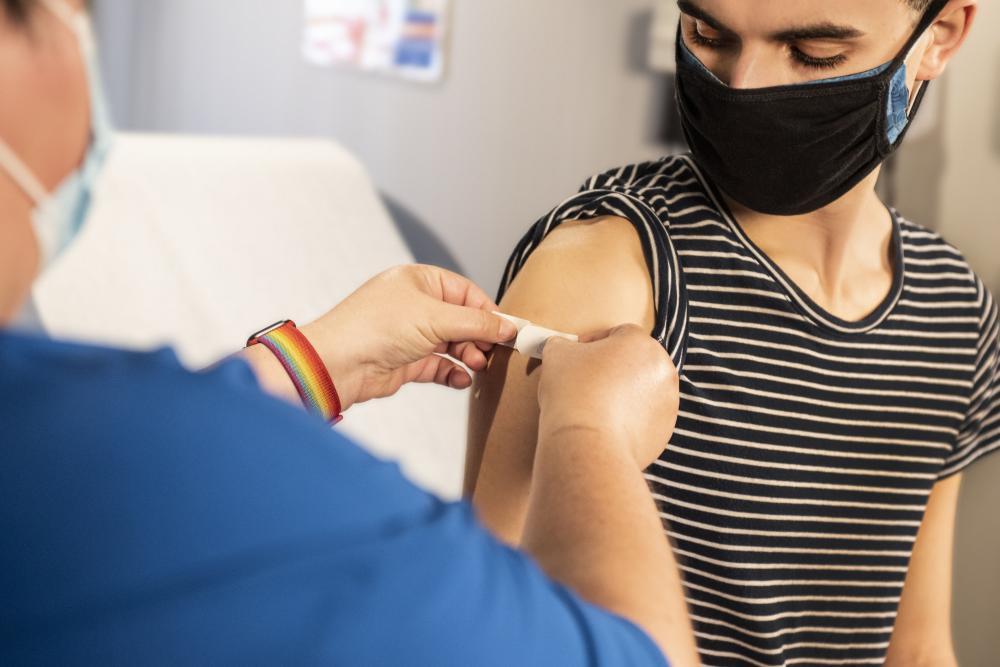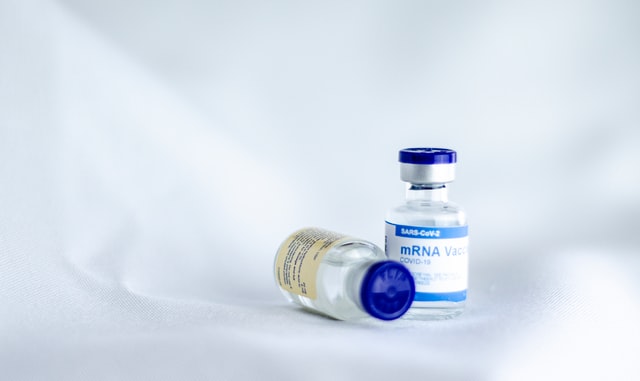Afraid of the Vaccine

Trypanophobia sounds like a pretty big word that no one can understand, but it is the medical name for an extreme fear of needles. Back when I was around 15 I had a psychiatrist tell me she thought I might have it. And as time went on it became evident that I did have a phobia-level fear of needles. Every time I saw a needle in a film or in real life I would either cry, scream or even black out. It is that bad. Even now at 19 I cannot stomach the thought of getting anywhere near a needle. Unfortunately there is this thing called a global pandemic we are currently living in and now we have reached the stage where the vaccine is here and being administered to each nation's citizens. I am scared. I know I should get the vaccine but I do not feel mentally prepared. So what does it mean to have trypanophobia during a pandemic? Therapy!

As long as I could remember I was afraid of needles. Many children are, and rightfully so. It is an uncommon sensation associated to pain. However, when this childhood fear continues into adulthood there may be a larger issue. So what causes this phobia? The medical community has yet to officially dictate what is the specific cause but there are many possible reasons as to why this occurs. It can be brought out by childhood trauma, relatives who also have said phobia, a sensitive temperament or merely just learning about other people's negative experiences. Personally, I remember getting vaccines being quite traumatic. There were several instances I experienced as a kid where I was pinned down by nurses and my parents to receive vaccines. I never thought about it until my therapist told me that was one of the worst things they could have done to me. Who knew? (Well obviously the therapist.) Having a phobia in general can bring out physical symptoms. I was told by a doctor after one of several fainting spells induced by my fear of needles that I may have vasovagal which causes severe dizziness or fainting when exposed to or receiving injections. Often one may also experience extreme anxiety or panic attacks, which is also something I have experienced on many occasions.
It is intense. Often I feel stress and anxiety, but also a bit of shame that I cannot be grown-up enough to do a basic task such as getting a shot. By the time I was 16 I was prescribed ativan which is an anti-anxiety medication. I would take one every time I had to get a shot, unfortunately the rest of my day was hard to recover since I was on something that relaxes you. I did not want to have to keep going with my parents to the doctor's office on anti-anxiety medication where I would do things like have my dad hold me like a baby in the waiting room at 18. I am all by myself here in Paris and I wanted to be prepared for the possibility that I would get vaccinated here in France where I had no family. To ask a friend to deal with a full blown mental breakdown over a little needle seemed ridiculous. So, I have made the conscientious decision to start desensitization therapy. It is not easy or fun but it is the only step to get over this.
📢NEWS: The Museum will serve as an NYC COVID-19 vaccination site beginning April 23.
🐋This vaccination site will serve all New York City residents, with set-aside appointments for groups including @NYCHA residents + staff and members of @DistCouncil37. #NYCVaccineForAll pic.twitter.com/SXW84mKEeg— American Museum of Natural History (@AMNH) April 19, 2021
As someone who had been to try it out a few years ago, I was not entirely sure what desensitization for something such as needle phobia would entail. My therapist, Dr. Eva Kemppainen, has done desensitization therapy for needle phobias on a few patients. She said that, "like any phobia, it requires exposure therapy." Oh great, getting to face my worst fear on repeat is really what this year needed. Basically, it started with her sending me pictures of needles, which she recommended I look at for about five to ten minutes a day or until I no longer feel anxious. One thing I didn't expect from this process is that it is very self-disciplined. I have to hold myself responsible for making exposure in my daily life. And to be honest I can't make myself do it everyday. Then I feel like I am not pushing myself hard enough, but to paraphrase Dr. Kemppainen, you cannot be too forceful with this. You need to go at your own pace and do what creates the least amount of stress and anxiety. With desensitization therapy there is a specific order one follows. According to The Anxiety and Phobia Workbook, by Edmund J. Bourne, the steps of exposure are: 1) looking at images of needles, people receiving shots, or having their blood drawn, 2) watching videos of people receiving shots or getting their blood drawn, 3) visiting a doctor's office and watching someone get a shot, 4) visit a doctor's office while someone gets their blood drawn, 5) handle syringes, 6) have a health care professional touch you with a syringe without penetrating the skin, 7) receive a shot in the arm, and finally 8) receive a blood draw. Trying to knock out these steps is quite difficult. I have barely been able to handle step two! Not just that, but with the current circumstances, trying to get into doctor's offices or labs with someone is a bit more complicated. So, trying to follow the later steps of this process is hard. But Dr. Kemppainen assured me that this process is long and does not happen over night.
So, in the context of the pandemic what does all this mean? I am not ready for the vaccine. By the time I receive my COVID vaccine I will still panic. But the whole point of overcoming a phobia isn't to accomplish some sort of immediate task. It is done with the intent of creating a future of positive experiences associated with getting shots instead of constantly associating these experiences to ones of fear and anxiety. The process is long and arduous, but in the end it will be worth it.





